
Reviewable is an online review web based application focused on the international English language market. It is a proof-of-concept developed as part of my final project at the College of Computing Technology (CCT) Dublin. Despite this sector contributing hugely to the Irish economy, the few regulations on the industry caused a wave of closures from 2014 to 2016.
Besides the technical aspects of the application, the project also documents the Agile development process, with time-boxed meetings, user stories, problem scenarios, personas, and interviews, as well as decisions in the business logic of the system, and further refinement of the product it’s main features.
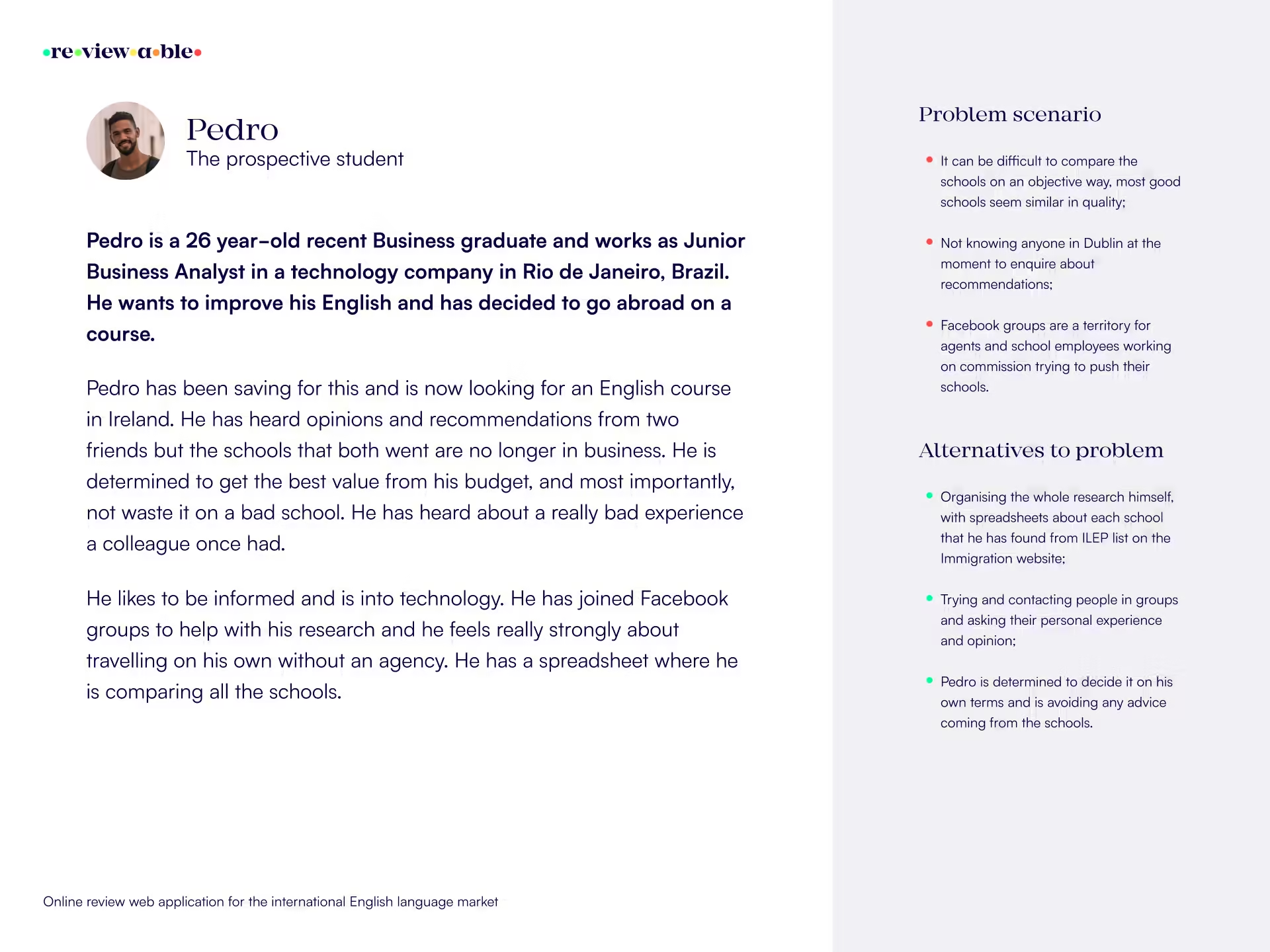
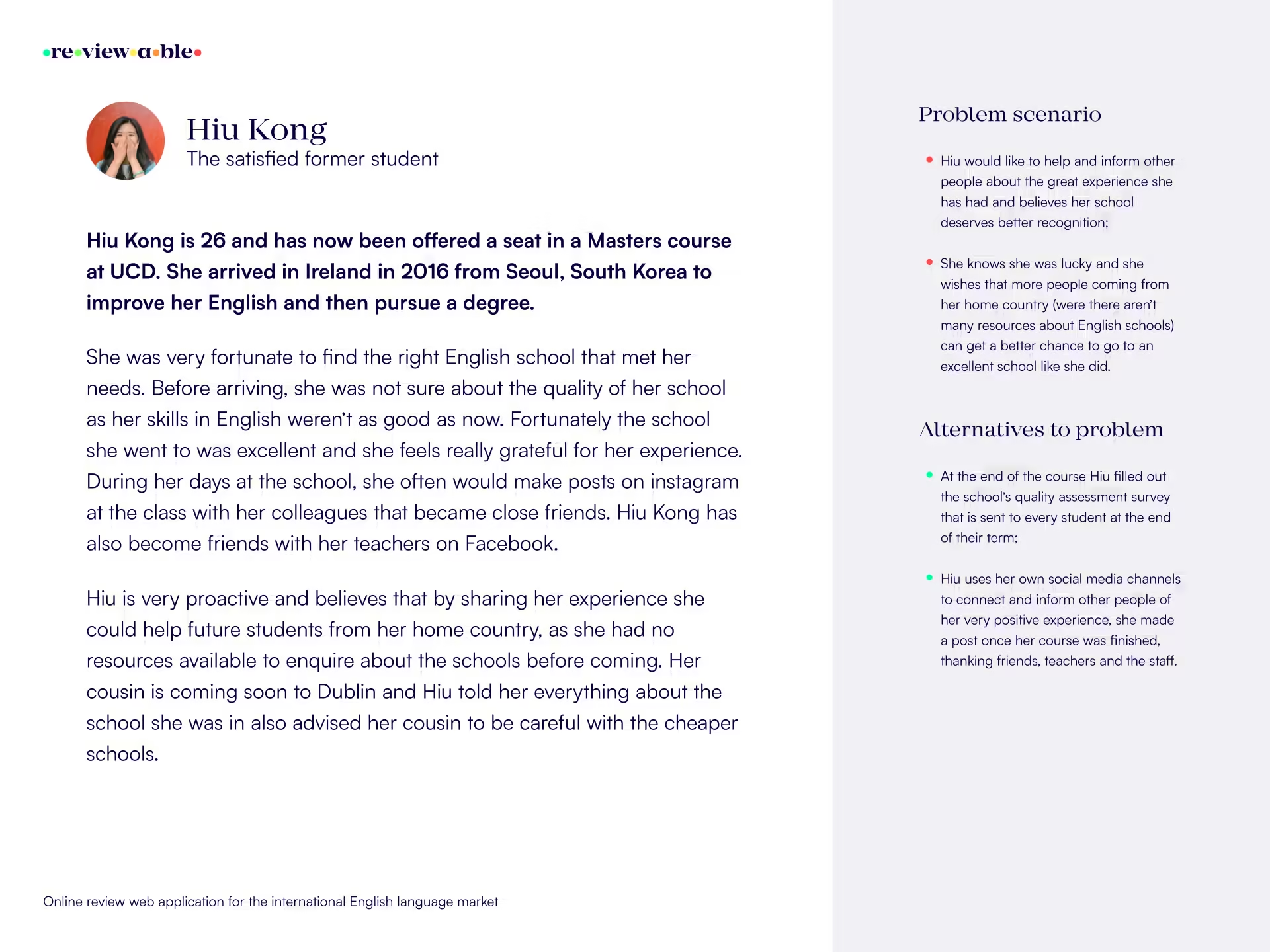
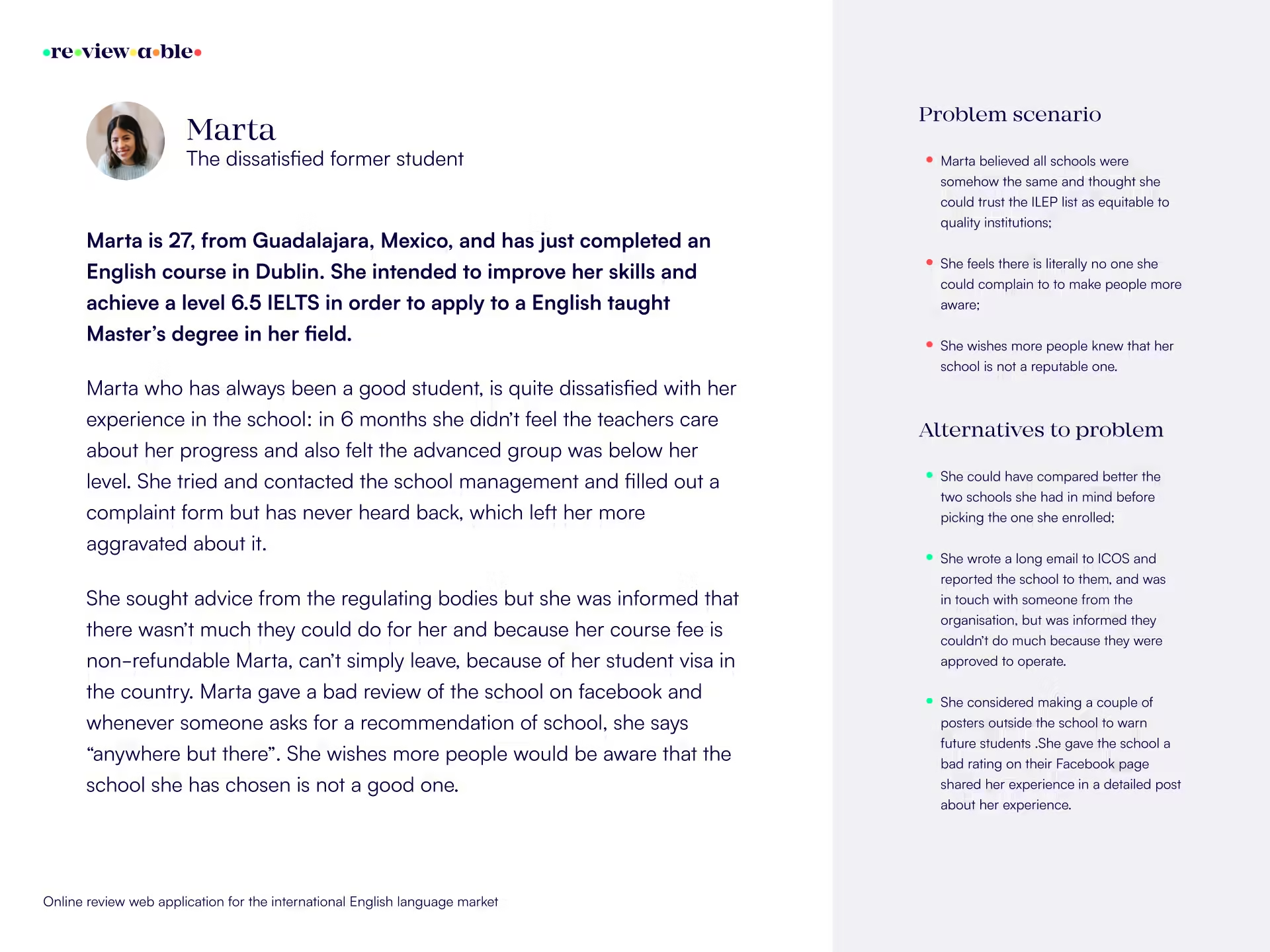
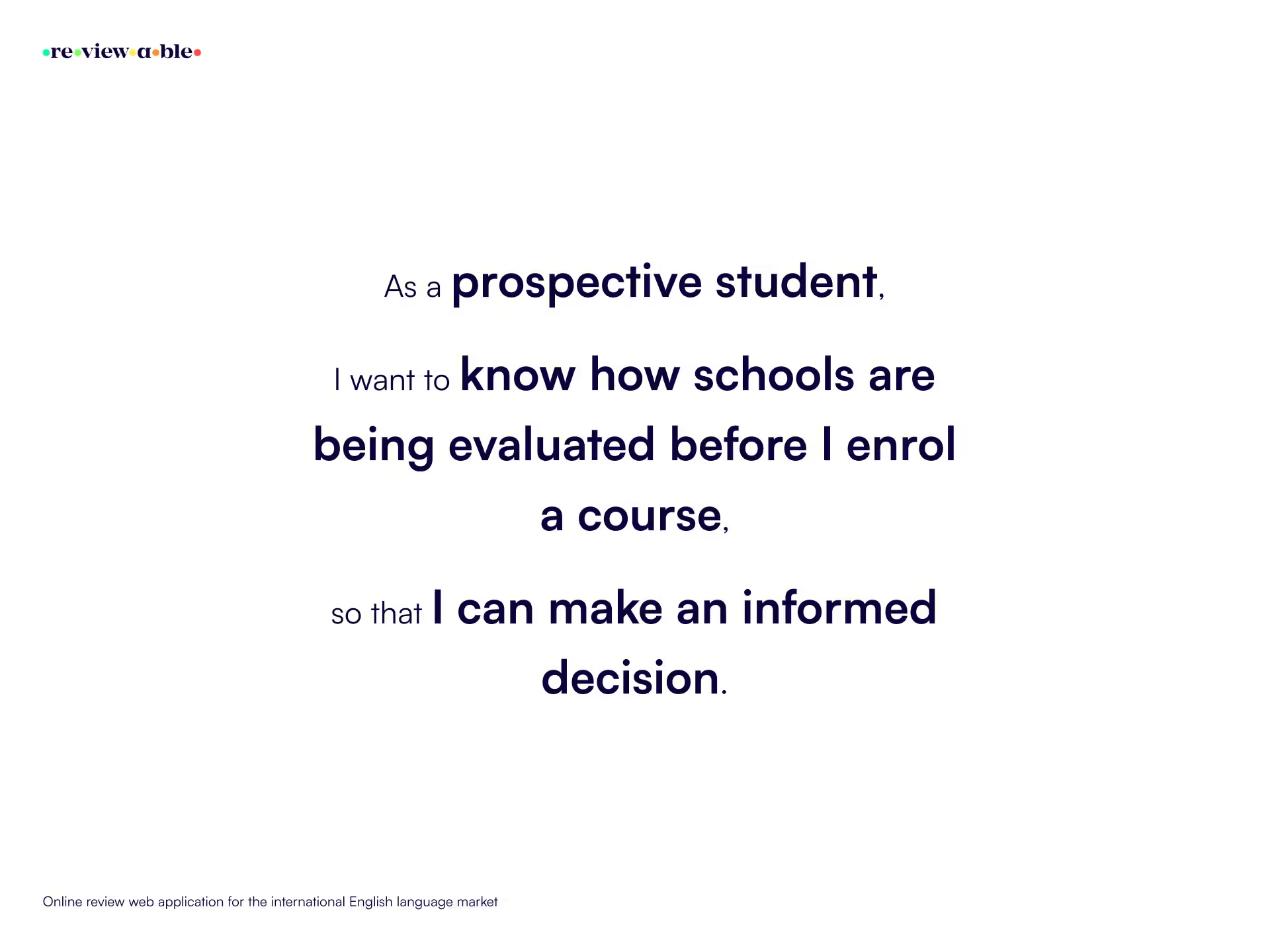
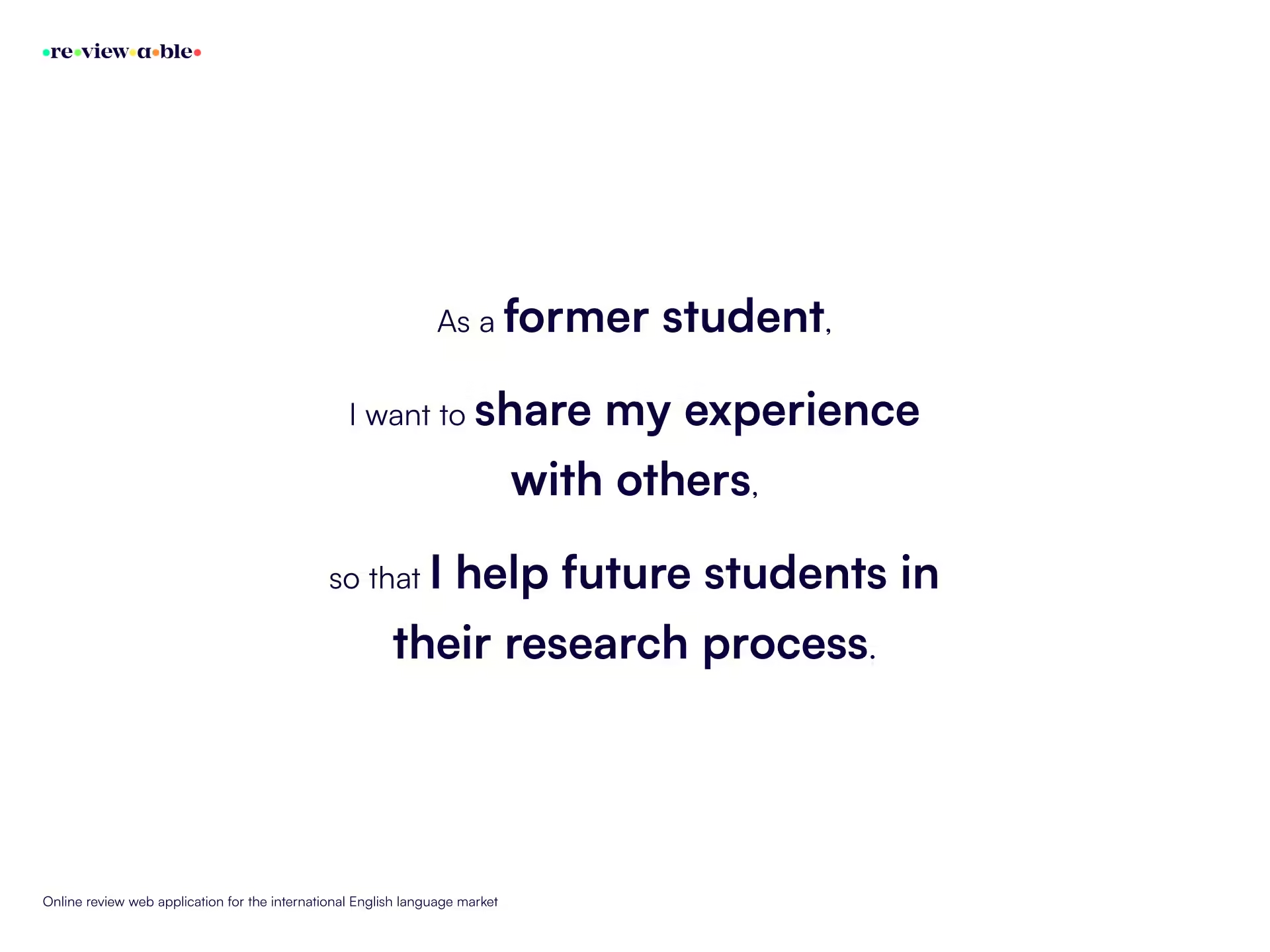
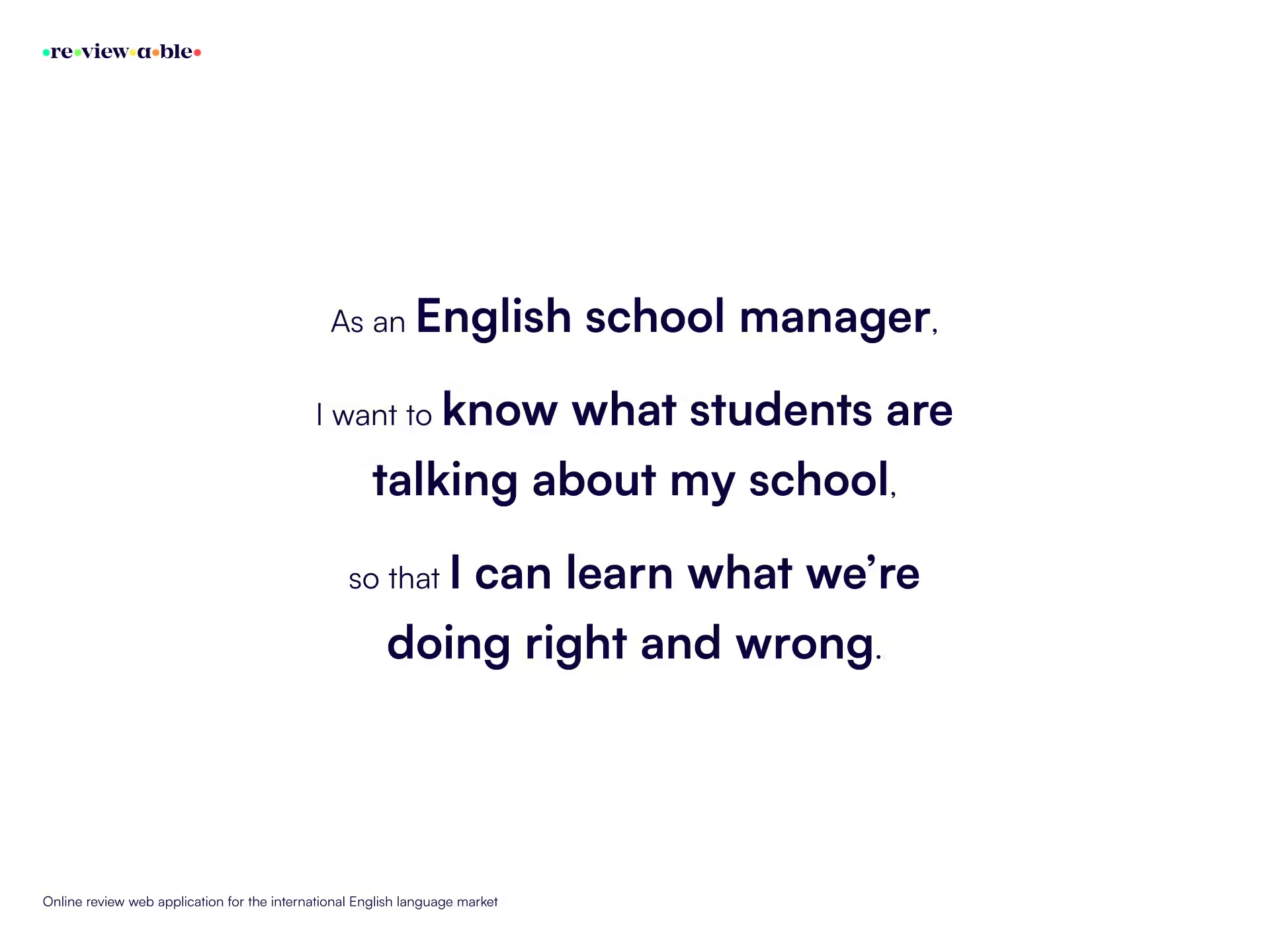
Taking the universe of the problem as a starting point (from the issue with biased online reviews to immigration laws) and further elaborating it through the use of personas, we were able to reach specific problem scenarios (pain points) that were validated through qualitative interviews.
We used these pain points to formulate the requirements for the system and later iterated diagrams that informed the system’s main features. The proposed review process welcomes the participation of schools in the review verification process and accommodates for other types of verification (by government bodies), as well as providing means to differentiate verified and unverified content to the end user.
We produced wireframes for the key components to inform the UI and development of the MVP of the application in the student use case.
For the review form itself, it was decided that in addition to a qualitative comment, we would also require a quantitative assessment of key data points to keep reviews grounded in an objective and measurable indicator. The different questions and assessment topics were inspired by the K12 education surveys.
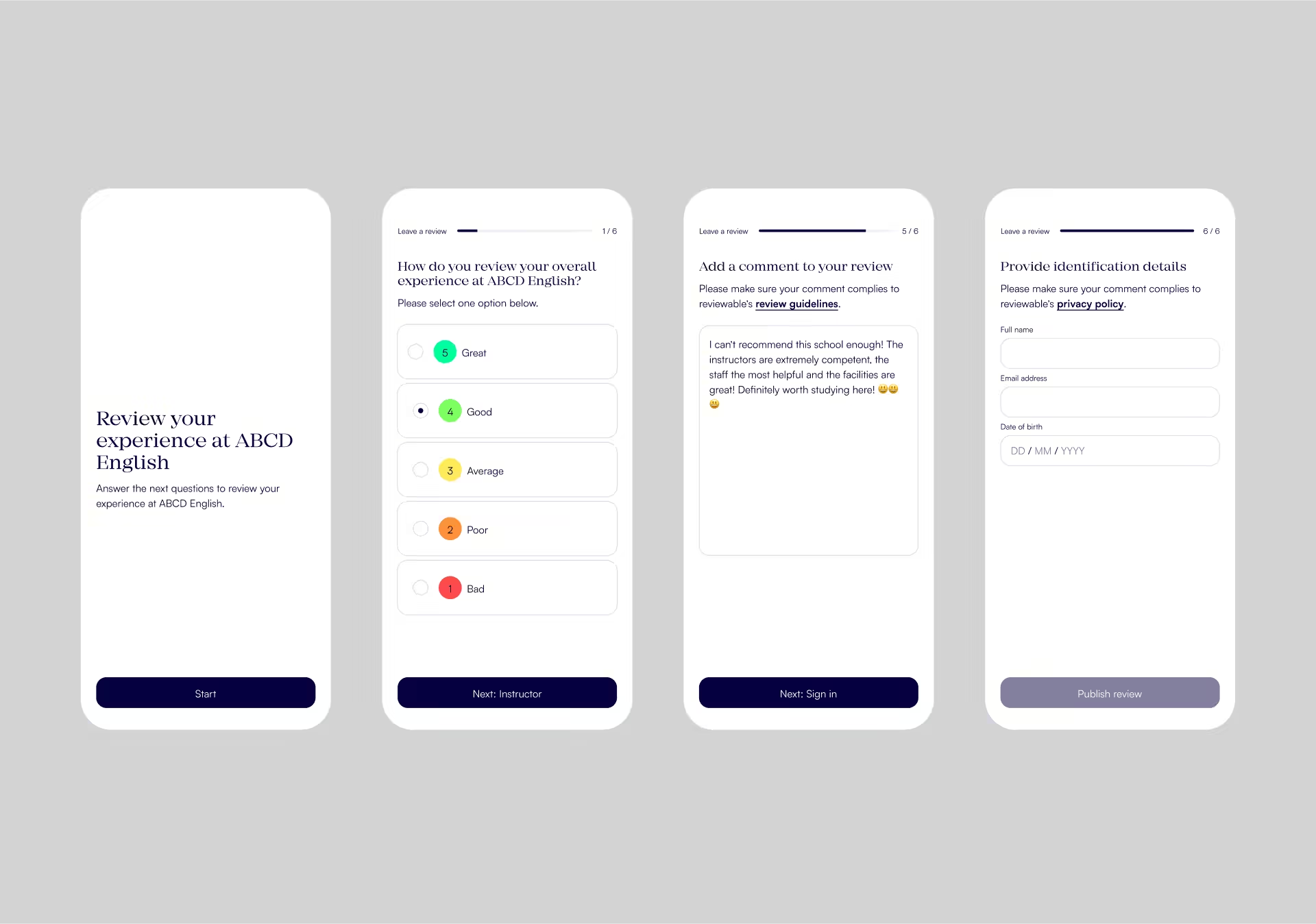
A 5-point Likert scale was selected to reduce the level of granularity of the answers and to remove ambiguity to the reviewing student whilst also providing clear differentiation between the answers.
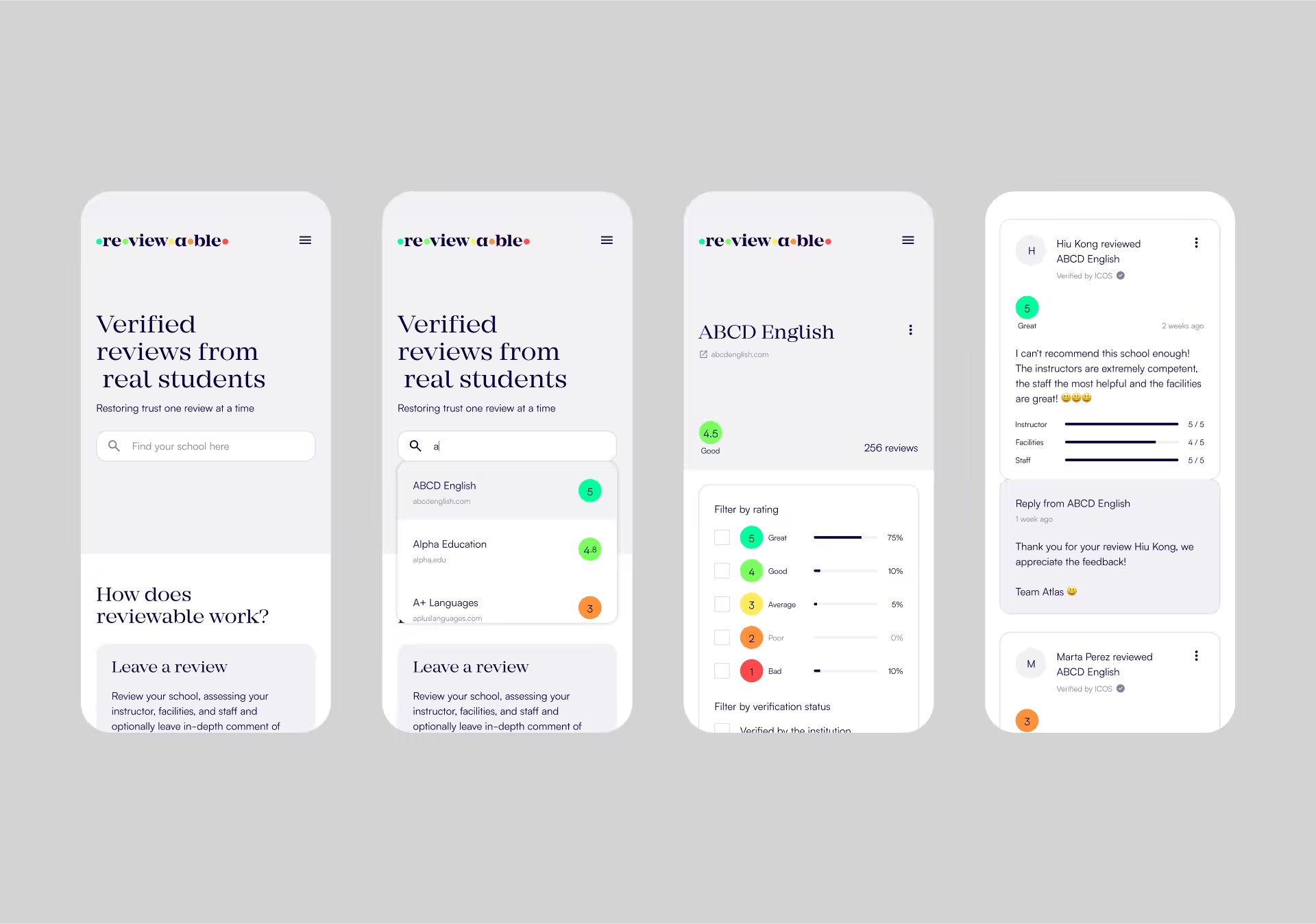
The naming and branding were then developed. The adjective reviewable was selected (as in subject to review) as it relates directly with the nature of the project and it opens opportunities for domain names and positive associations that read grammatically correct, such as in ‘reviewable education’. By making direct reference to the 5-point scale in the syllable separation of the word, a colour coded system is presented.
As a requirement for the BSc degree in Information Technology, a walkthrough of the student use case was presented as well as the project report and documentation. The conclusion of this project outlined next steps for the application development, which included aspects identified during the interviews such as opportunities for features such as social logins, automatic translation of reviews and integration with Google Maps in the school card.